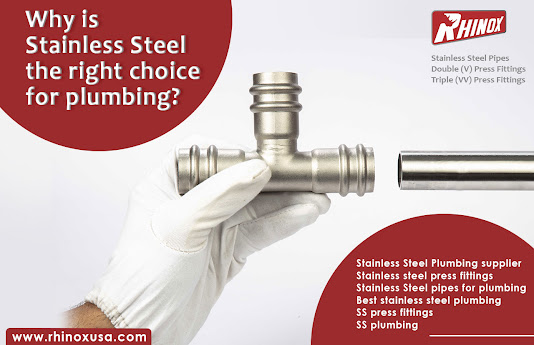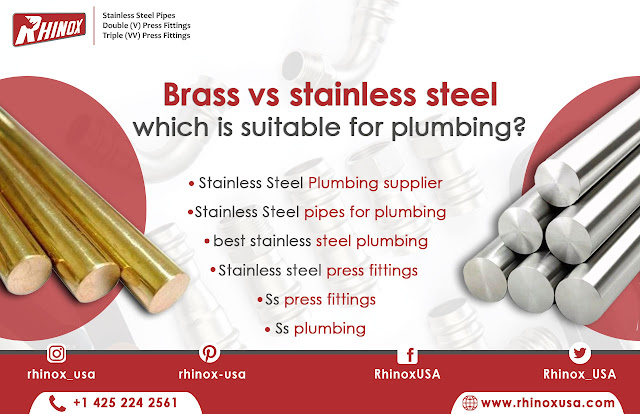Is brass better for plumbing than stainless steel?
The
choice between brass and stainless steel plumbing is very
important when deciding the correct material for your project. One material is
often more suitable for a particular project than the other because of the
differences between them. In this article, we will focus on a comparison of
brass and stainless steel.
Brass
Brass
is an alloy of copper which means that it is more durable than plastic. Because
of this additional strength, they are more expensive than the PVC or plastic
valves, even though they are not the most expensive. Copper and zinc are usually
present in brass, but sometimes other metals are present as well. It can resist
corrosion better than plastic valves due to the nature of its soft nature. The
high heat tolerance of brass makes it an ideal choice for use in plumbing at
home. Brass valves are also cheaper and easier to install.
There
are, however, some disadvantages to brass valves. Lead is often present in
brass valves. The maximum lead content of brass valves is generally less than
2%, but this still causes some skepticism. A brass valve may only be used if it
is certified lead-free by the FDA.
Stainless Steel
Steel
is a durable, resilient metal that is more expensive than brass. In contrast to
brass, stainless steel is made of iron alloyed with chromium and nickel. Since these stainless
steel water pipes are made of a special material, there will be no
leaks. Furthermore, steel can work at higher temperatures and typically lasts
longer than brass. High pressure and temperature situations are best handled
using stainless steel valves. Corrosion resistance is another advantage of
these materials.
Its
higher nickel content and molybdenum content make stainless steel 316 a
corrosion-resistant valve. Due to the combination of iron, nickel, and
molybdenum, the valves are hardened to make them extremely resistant to
chlorides and very useful for marine environments.
Overview:
Expenses: It is more expensive to purchase stainless steel than brass. Brass plumbing is an economical option if the material is suitable for your project and budget is an issue. But, stainless steel plumbing fittings last longer and doesn't require much repairing.
2.
FDA Certification: Brass
valves cannot be used in the food industry unless they are lead-free, which
makes them an unsuitable choice. Due to stainless steel’s
FDA approval, this material is used in the industry.
3.
Resistance to corrosion: In comparison with plastic, brass has much
better corrosion resistance. But, stainless steel remains the best
material, especially in coastal environments.
Consider these factors should when deciding on a plumbing material for your next project. Always make sure that you conduct in-depth research about your industry, needs, and the materials that you are interested in, before choosing a material for your plumbing needs.




Comments
Post a Comment